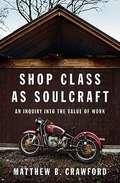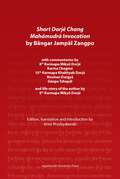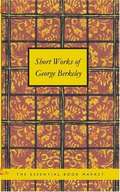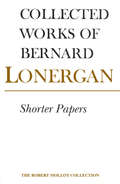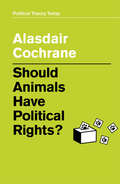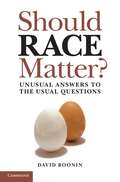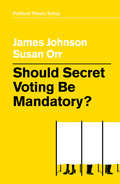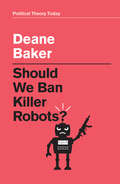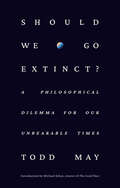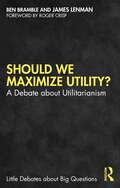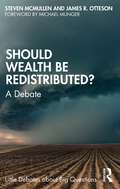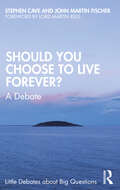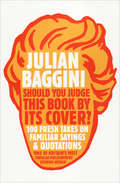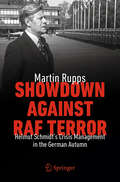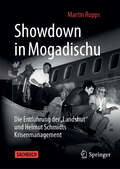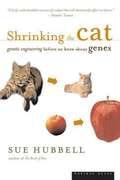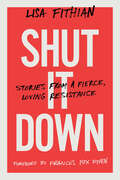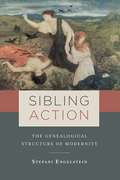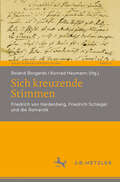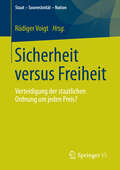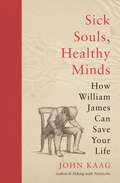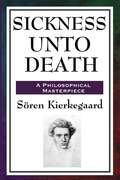- Table View
- List View
Shop Class as Soulcraft
by Crawford Matthew B.A philosopher/mechanic destroys the pretensions of the high-prestige workplace and makes an irresistible case for working with one's hands. Shop Class as Soulcraft brings alive an experience that was once quite common but now seems to be receding from society - the experience of making and fixing things with our hands. Those of us who sit in an office and often feel a lack of connection to the material world, a sense of loss, and find it difficult to say exactly what we do all day. For those who felt hustled off to college, then to the cubicle, against their own inclinations, Shop Class as Soulcraft seeks to restore the honour of the manual trades as a life worth choosing. On both economic and psychological grounds, Crawford questions the educational imperative of turning everyone into a 'knowledge worker', based on a misguided separation of thinking from doing, the work of the hand from that of the mind. Crawford shows us how such a partition, which began a century ago with the assembly line, degrades workd for those on both sides of the divide. But Crawford offers good news as well: The manual trades are very different from the assembly line and from dumbed-down white collar work as well. They require careful thinking and are punctuated by moments of genuine pleasure. Based on his own experience as an electrician and mechanic, Crawford makes a case for the intrinsic satisfactions and cognitive challenges of manual work. The work of builders and mechanics is secure; it cannot be outsourced, and it cannot be made obselete. Such work ties us to the local communities in which we live and instills the pride that comes from doing work that is genuinely useful. A wholly original debut, Shop Class as Soulcraft offers a passionate call for self-reliance and a moving reflection on how we can live concretely in an ever more abstract world. 'Matt Craford's, remarkable book on the morality and metaphisics of the repairman looks into the reality of practical activity. It is a superb combination of testimony and reflection, and you can't put it down. 'HARVEY MANSFIELDProfessor of government, Harvard University'This is a deep exploration of craftsmanship by someone with real hands-on knowledge. The book is also quirky, surprising, and sometimes quite moving. 'RICHARD SENNETTAuthor of The Craftsman
Short Dorjé Chang Mahāmudrā Invocation by Bängar Jampäl Zangpo: with commentaries by 8th Karmapa Mikyö Dorjé, Karma Chagmé, 15th Karmapa Khakhyab Dorjé, Rinchen Dargyä, Gänpo Tshepäl and life-story of the author by 8th Karmapa Mikyö Dorjé
by Artur PrzybysławskiThe volume presents translations and editions of crucial mahāmudrā texts of Tibetan Buddhism. The Invocation by Bängar Jampäl Zangpo is considered one of the most important teachings of the Kagyü tradition. It was commented on by prominent masters and philosophers, whose commentaries are translated here for the first time into a European language.
Short Works of George Berkeley
by George BerkeleyGeorge Berkeley (1685-1753) was one of the three great British empiricist philosophers; his best known works include An Essay towards a New Theory of Vision and A Treatise Concerning the Principles of Human Knowledge.This text includes: Querist; A Essay Towards a New Theory of Vision; A Treatise Concerning the Principles of Human
Shorter Papers: Volume 20
by Robert M. Doran SJ Bernard Lonergan Robert C. Croken H. Daniel MonsourAs a prolific scholar and theologian, Bernard Lonergan authored a significant amount of material aside from the works with which he is commonly associated. Shorter Papers is a collection of lesser-known items written by Lonergan over the course of his career. Together, they offer privileged access to the author's thought and work, as well as a glimpse at some of his most personal qualities. <P><P> The items in this volume extend from some of the earliest writings – the Blandyke Papers, for instance, which predates any of the materials represented in the Collected Works – to pieces written near the end of Lonergan's life. Organized chronologically, they give an impression of his development as a writer, his ever-strengthening religious commitment, and his role as teacher. As a sampling of pieces from the late 1920s to the early 1980s, Shorter Papers testifies to the cumulative impact of Lonergan's work, as well as to the amazing continuity that he maintained throughout his career as an author and intellectual.
Should Animals Have Political Rights? (Political Theory Today)
by Alasdair CochraneAll political communities must make decisions about how to regulate the treatment of animals. Most states currently protect animals through outlawing the infliction of ‘unnecessary suffering’. But do animals’ rights end there? In this book, Alasdair Cochrane argues that states must go much further. Animals have rights to be protected not only from the cruelty of individuals, but also from those structures and institutions which routinely (and, in some cases, necessarily) cause them harm, such as industrialised animal agriculture. But even that isn’t adequate. In order to ensure that their interests are taken seriously, it is imperative that we represent their interests throughout the political process – they require not only rights to protection, but also to democratic membership. Cochrane’s important intervention in this controversial debate will be essential reading for anyone interested in the intersection of political theory and animal rights.
Should Race Matter? Unusual Answers to the Usual Questions
by David BooninPhilosopher David Boonin attempts to answer the moral questions raised by five important and widely contested racial practices: slave reparations, affirmative action, hate speech restrictions, hate crime laws and racial profiling. Arguing from premises that virtually everyone on both sides of the debates over these issues already accepts, Boonin arrives at an unusual and unorthodox set of conclusions, one that is neither liberal nor conservative, color conscious nor color blind. Defended with the rigor that has characterized his previous work but written in a more widely accessible style, this provocative and important new book is sure to spark controversy and should be of interest to philosophers, legal theorists and anyone interested in trying to resolve the debate over these important and divisive issues.
Should Secret Voting Be Mandatory? (Political Theory Today)
by James JohnsonThe secrecy of the ballot, a crucial basic element of representative democracy, is under threat. Attempts to make voting more convenient in the face of declining turnout – and the rise of the “ballot selfie” – are making it harder to guarantee secrecy. Leading scholars James Johnson and Susan Orr go back to basics to analyze the fundamental issues surrounding the secret ballot, showing how secrecy works to protect voters from coercion and bribery. They argue, however, that this protection was always incomplete: faced with effective ballot secrecy, powerful actors turned to manipulating turnout – buying presence or absence at the polls – to obtain their electoral goals. The authors proceed to show how making both voting and voting in secret mandatory would foreclose both undue influence and turnout manipulation. This would enhance freedom for voters by liberating them from coercion or bribery in their choice of both whether and how to vote. This thought-provoking and insightful text will be invaluable for students and scholars of democratic theory, elections and voting, and political behavior.
Should We Ban Killer Robots? (Political Theory Today)
by Deane BakerImages of killer robots are the stuff of science fiction – but also, increasingly, of scientific fact on the battlefield. Should we be worried, or is this a normal development in the technology of war? In this accessible volume ethicist Deane Baker cuts through the confusion over whether lethal autonomous weapons – so-called killer robots – should be banned. Setting aside unhelpful analogies taken from science fiction, Baker looks instead to our understanding of mercenaries (the metaphorical ‘dogs of war’) and weaponized animals (the literal dogs of war) to better understand the ethical challenges raised by the employment of lethal autonomous weapons (the robot dogs of war). These ethical challenges include questions of trust and reliability, control and accountability, motivation and dignity. Baker argues that, while each of these challenges is significant, they do not – even when considered together – justify a ban on this emerging class of weapon systems. This book offers a clear point of entry into the debate over lethal autonomous weapons – for students, researchers, policy makers and interested general readers.
Should We Go Extinct?: A Philosophical Dilemma for Our Unbearable Times
by Todd MayShould we bring new humans into the world? Or would it be better off without us? A renowned philosopher and advisor to NBC&’s The Good Place offers a thoughtful exploration of humanity&’s future—or lack thereof. &“For more than five years, Todd May was my philosophical advisor. I heartily recommend that he be yours as well. (It helps that he&’s quite funny.)&”—Michael Schur, from the Introduction These days it&’s harder than ever to watch TV, scroll social media, or even just sit at home looking out of the window without contemplating the question at the heart of philosopher Todd May&’s Should We Go Extinct? Facing climate destruction and the revived specter of nuclear annihilation even as humans continue to cause untold suffering to our fellow creatures on planet Earth, we are forced each day to contemplate whether the world would be better off in our absence. In this timely, fascinating examination, May, a renowned philosopher and advisor to the acclaimed TV show The Good Place, reasons both for and against the continuation of our species, trying to help us understand how and whether, the positive and negative tallies of the human ledger are comparable, and what conclusions we might draw about ourselves and our future from doing so. He discusses the value that only humans can bring to the world and to one another as well as the goods, like art and music, that would be lost were we no longer here. On the other side of the ledger, he walks us through the suffering we cause to nature and the non-human world, seeking to understand whether it&’s possible to justify such suffering against our merits and if not, what changes we could make to reduce the harm we cause. In this moment of rising pessimism about the future, and as many people wonder whether they should bring children into such a dark and difficult world, the questions May tackles in Should We Go Extinct? are hardly theoretical. As he explores the complexities involved with changes such as an end to factory farming, curbing scientific testing of animals, reducing the human population, and seeking to develop empathy with our fellow creatures, May sketches a powerful framework for establishing our responsibilities as a species and gives hope that we might one day find universal agreement that the answer to his title question should be No.
Should We Maximize Utility?: A Debate about Utilitarianism (Little Debates about Big Questions)
by Ben Bramble James LenmanUtilitarianism directs us to act in ways that impartially maximize welfare or utility or at least aim to do that. Some find this view highly compelling. Others object that it has intuitively repugnant results, that it condones evildoing and injustice, that it is excessively imposing and controlling, that it is alienating, and that it fails to offer meaningful, practical guidance.In this ‘Little Debates’ volume, James Lenman argues that utilitarianism’s directive to improve the whole universe on a cosmic time scale is apt to lead it down a path of imperious moral overreach. The project, he further maintains, ultimately shipwrecks on an extreme lack of epistemic humility in framing the determinants of what is morally right and wrong beyond the limits of what we can ever hope to know. Utilitarianism thus leaves us morally clueless. In contrast, Ben Bramble seeks to develop and defend an original form of utilitarianism, less vulnerable than other, more familiar versions to a number of important objections, including those raised by Lenman. He aims to avoid such unappealing results by presenting it as a claim about what we have the most reason to do, and not as a theory of right action, which Bramble urges we should understand quite differently by reference to what would motivate virtuous people.Key Features: Focuses on one of the dominant ethical theories debated by moral philosophers today Clearly written, free of jargon and technicality, and highly accessible to students Addresses questions of great importance to anyone wishing to grow in understanding of human moral life Provides a glossary of key terms highlighted in bold as well as a bibliography for further reading Important issues discussed include: welfare; value; right action; virtue; impartiality; obligations to non-human animals; the badness of human extinction; the happiness of future people; the ethics of climate change; the long term future; and the moral significance of the limits to what we can know.
Should Wealth Be Redistributed?: A Debate (Little Debates about Big Questions)
by James R. Otteson Steven McMullenA central contested issue in contemporary economics and political philosophy is whether governments should redistribute wealth. In this book, a philosopher and an economist debate this question. James Otteson argues that respect for individual persons requires that the government should usually not alter the results of free exchanges, and so redistribution is usually wrong. Steven McMullen argues that governments should substantially redistribute wealth in order to ensure that all have a minimal opportunity to participate in economic life. Over the course of the exchange, the authors investigate a number of important questions. Is redistribution properly a question of justice, and what is the appropriate standard? Has the welfare state been effective at fighting poverty? Can we expect government intervention in the economy to be helpful or counterproductive? Are our obligations to help the poor best met through government action, or through private philanthropy and individual charity? The book features clear statements of each argument, responses to counterarguments, in-text definitions, a glossary of key terms, and section summaries. Scholars and students alike will find it easy to follow the debate and learn the key concepts from philosophy, politics, and economics necessary to understand each position. Key Features: Offers clear arguments written to be accessible to readers and students without a deep background in economics, philosophy, or political theory. Fosters a deep exchange of ideas with responses from each author to the main arguments. Provides in-text definitions and a glossary with definitions of key terms. Includes section summaries that give an overview of the main arguments and a comprehensive bibliography for further reading.
Should You Choose to Live Forever?: A Debate (Little Debates about Big Questions)
by Stephen Cave John Martin FischerIn this book, Stephen Cave and John Martin Fischer debate whether or not we should choose to live forever. This ancient question is as topical as ever: while billions of people believe they will live forever in an otherworldly realm, billions of dollars are currently being poured into anti-ageing research in the hope that we will be able to radically extend our lives on earth. But are we wise to wish for immortality? What would it mean for each of us as individuals, for society, and for the planet? In this lively and accessible debate, the authors introduce the main arguments for and against living forever, along with some new ones. They draw on examples from myth and literature as well as new thought experiments in order to bring the arguments to life. Cave contends that the aspiring immortalist is stuck on the horns of a series of dilemmas, such as boredom and meaninglessness, or overpopulation and social injustice. Fischer argues that there is a vision of radically longer lives that is both recognizably human and desirable. This book offers both students and experienced philosophers a provocative new guide to a topic of perennial importance. Key Features: Gives a comprehensive overview of the main arguments for and against living forever. Uses lively examples from myth, literature, and novel thought experiments. Highly accessible—avoiding jargon and assuming no prior knowledge—without sacrificing intellectual rigour. Includes helpful pedagogical features, including chapter summaries, an annotated reading list, a glossary, and clear examples.
Should You Judge This Book By Its Cover?: 100 Fresh Takes On Familiar Sayings And Quotations
by Julian BagginiA philosopher takes a second look at sayings, proverbs, and bits of homespun wisdom: &“Every society needs its guardian of good sense: Baggini is ours.&” —The Financial Times These short, stimulating, and entertaining capsules of philosophy delve into the familiar words that live in our consciousness yet are rarely examined. Should you really do as the Romans do when in Rome and practice what you preach? Is the grass always in fact greener on the other side of the fence, and is there ever smoke without fire? Is beauty always in the eye of the beholder and is it actually better to be safe than sorry? From the popular author of The Pig That Wants to Be Eaten, cofounder of The Philosophers&’ Magazine, and academic director of the Royal Institute of Philosophy, this is a witty, deeply thought-provoking reminder that we should never stop asking questions.
Showdown Against RAF Terror: Helmut Schmidt’s Crisis Management in the German Autumn
by Martin Rupps"The killing of individuals must be accepted." Federal Chancellor Helmut Schmidt, Bonn, in a telephone conversation with Minister of State Hans-Jürgen Wischnewski, Dubai, October 1977 The year of terror in 1977, which included the kidnapping of German industrial leader Hanns Martin Schleyer and later the hijacking of the Lufthansa plane "Landshut" with 86 passengers and five crew members on board, presented the Federal Republic of Germany with its greatest test to date. Federal Chancellor Helmut Schmidt had to engage in crisis management like no other incumbent before him. Hanns Martin Schleyer was ultimately murdered by his abductors, also the Captain of the “Landshut” Jürgen Schumann. The other "Landshut" hostages were freed by members of Border Guard Force 9 under Commander Ulrich Wegener. In this book, political scientist and historian Martin Rupps, who was responsible for bringing the "Landshut" wreckage back to Germany from Brazil, retells the story of these fateful weeks, drawing on a range of previously unpublished sources to do so. For the first time, he shares deep insights into the thoughts and actions of Chancellor Helmut Schmidt and the members of the core and extended crisis teams. Contrary to the official narrative, Schmidt has never practiced more political cooperation than in these weeks. Further, in the hijacked "Landshut" itself, events unfolded differently than previously reported. "Man is the wolf of man", as philosopher Thomas Hobbes famously wrote.
Showdown in Mogadischu: Die Entführung der „Landshut“ und Helmut Schmidts Krisenmanagement
by Martin RuppsDas Terror-Jahr 1977 mit der Entführung von Arbeitgeberpräsident Hanns Martin Schleyer und später der Lufthansa-Maschine „Landshut“ mit 86 Passagieren und fünf Besatzungsmitgliedern an Bord stellte die Bundesrepublik Deutschland vor ihre bisher größte Belastungsprobe. Bundeskanzler Helmut Schmidt musste ein Krisenmanagement leisten wie noch kein Amtsinhaber vor ihm. Hanns Martin Schleyer wurde von seinen Entführern ermordet, die „Landshut“-Geiseln kamen durch Angehörige der GSG9 frei. Der Politikwissenschaftler und Historiker Martin Rupps, auf den die Rückholung des „Landshut“-Wracks aus Brasilien nach Deutschland zurückgeht, erzählt anhand vieler bisher unveröffentlichter Quellen die Geschichte dieser Wochen neu. Erstmals kann er tiefe Einblicke geben in das Denken und Handeln von Bundeskanzler Helmut Schmidt und den Mitgliedern des Kleinen und Großen Krisenstabs. Helmut Schmidt war in diesen Wochen entgegen der offiziellen Darstellung der einsamste Politiker der Welt. In der entführten „Landshut“ selbst trugen sich die Ereignisse anders zu als bisher erzählt. „Der Mensch ist des Menschen Wolf“, hat der Philosoph Thomas Hobbes geschrieben.
Showing Time: In Memory of Alberto Argenton
by Ian F. Verstegen Laura Messina-Argenton Tiziano Agostini Tamara PrestHow does a visual artist manage to narrate a story, which has a sequential and therefore temporal progression, using a static medium consisting solely of spatial sign elements and, what is more, in a single image? This is the question on which this work is based, posed by its designer, Alberto Argenton, to whose memory it is dedicated. The first explanation usually given by scholars in the field is that the artist solves the problem by depicting the same character in a number of scenes, thus giving indirect evidence of events taking place at different times. This book shows that artists, in addition to the repetition of characters, devise other spatial perceptual-representational strategies for organising the episodes that constitute a story and, therefore, showing time. Resorting to the psychology of art of a Gestalt matrix, the book offers ha formattato: Italiano (Italia) Codice campo modificato ha formattato: Italiano (Italia) ha formattato: Italiano (Italia) researchers, graduates, advanced undergraduates, and professionals a description of a large continuous pictorial narrative repertoire (1000 works) and an in-depth analysis of the perceptual-representational strategies employed by artists from the 6th to the 17th century in a group of 100 works narrating the story of Adam and Eve.
Shrinking Japan and Regional Variations: Along the Hokurikudo and the Tosando I (SpringerBriefs in Population Studies)
by Fumie KumagaiThis book provides an insightful sociological study of the shrinking Japanese population through a regional variation perspective as it varies significantly by municipality, even within the same prefecture. Using demographic data on municipal levels, the book identifies the power unique to each municipality, which can mobilize a shrinking but sustainable Japan. The study identifies the principal explanatory factors based on the small area data of e-Stat through GPS statistical software tools such as G-census and EvaCva within a historical perspective. The theoretical framework of this study, i.e., the reason for regional variations in Japan, is the Goki-Shichido (Five Home Provinces and Seven Circuits of Ancient Japan). This historical knowledge helps in understanding the significance of the regional cultural heritage that remains in each municipality today. The book pays special attention to municipal variations within the same prefecture, utilizing a completely unique approach, unlike those that have been pursued by other researchers. This volume studies two present-day prefectures for detailed analyses based on the Goki-Shichido framework for impacts of regional variations of population decline in Japan. They are Niigata Prefecture, made up of the formerly named Echigo and Sado provinces; Ishikawa Prefecture, formed by the ancient Kaga and Noto provinces; Fukui Prefecture, based on the earlier Wakasa and Echizen provinces of the Hokurikudo; Nagano Prefecture, still called Shinano Province today and commonly divided into four areas and ten regions; and Gifu Prefecture, composed of the ancient Mino and Hida provinces of the Tosando as examples of the impact of municipal power on regional variations of shrinking Japan. However, due to the limitation of the number of pages set forth for Springer Briefs in Population Studies: Population Studies of Japan, for which the current publication is a part, it has become necessary to divide the book into two volumes, namely Volume I and Volume II. Because of this limitation the current volume I is consisted of three chapters, namely, Chapter 1: Issues, theoretical framework, and methodology; Chapter 2: Niigata Prefecture in the Hokurikudo; and Chapter 3: Ishikawa Prefecture in the Hokurikudo. The remaining three prefectures, i.e., Fukui in the Hokurikudo area, Nagano and Gifu both in the Tosando area will be discussed in the Volume II of this book. By presenting unique analyses of regional variations on small municipal levels, with demographic variables, social indicators, and historical identities, this book offers suggestions for effective regional policies to revitalize a shrinking Japan to a sustainable one. The Volume I, therefore, analyzes and discusses in detail both Niigata and Ishikawa prefectures of the Hokurikudo.
Shrinking Japan and Regional Variations: Along the Hokurikudo and the Tosando II (SpringerBriefs in Population Studies)
by Fumie KumagaiThis book provides an insightful sociological study of the shrinking Japanese population through a regional variation perspective as it varies significantly by municipality, even within the same prefecture. Using demographic data on municipal levels, the book identifies the power unique to each municipality, which can mobilize a shrinking but sustainable Japan. The study identifies the principal explanatory factors based on the small area data of e-Stat through GPS statistical software tools such as G-census and EvaCva within a historical perspective. The theoretical framework of this study, i.e., the reason for regional variations in Japan, is the Goki-Shichido (Five Home Provinces and Seven Circuits of Ancient Japan). This historical knowledge helps in understanding the significance of the regional cultural heritage that remains in each municipality today. The book pays special attention to municipal variations within the same prefecture, utilizing a completely unique approach, unlike those that have been pursued by other researchers. This book studies three present-day prefectures for detailed analyses based on the Goki-Shichido framework for impacts of regional variations of population decline in Japan. They are Niigata Prefecture, made up of the formerly named Echigo and Sado provinces; Ishikawa Prefecture, formed by the ancient Kaga and Noto provinces; Fukui Prefecture, based on the earlier Wakasa and Echizen provinces of the Hokurikudo; Nagano Prefecture, still called Shinano province today and commonly divided into four areas and ten regions; and Gifu Prefecture, composed of the ancient Mino and Hida provinces of the Tosando as examples of the impact of municipal power on regional variations of shrinking Japan. However, due to the limitation of the number of pages set forth for Springer Briefs in Population Studies: Population Studies of Japan, for which the current publication is a part, it has become necessary to divide the book into two volumes, namely Volume I and Volume II. Because of this limitation, the current Volume II consisted of four chapters. They are Chapter 1: Fukui Prefecture in the Hokurikudo; Chapter 2: Nagano Prefecture in the Tosando; Chapter 3: Gifu Prefecture in the Tosando, and Chapter 4: Epilogue: The Future of Shrinking Japan. The remaining two prefectures, i.e., Niigata and Ishikawa prefectures in the Hokurikudo area have been discussed in the Volume I of this book. By presenting unique analyses of regional variations on small municipal levels, with demographic variables, social indicators, and historical identities, this book offers suggestions for effective regional policies to revitalize a shrinking Japan to a sustainable one.
Shrinking the Cat: Genetic Engineering Before We Knew About Genes
by Sue HubbellIn this timely and controversial work, Sue Hubbell contends that the concept of genetic engineering is anything but new, for humans have been tinkering with genetics for centuries. Focusing on four specific examples -- corn, silkworms, domestic cats, and apples -- she traces the histories of species that have been fundamentally altered over the centuries by the whims and needs of people.
Shut It Down: Stories from a Fierce, Loving Resistance
by Lisa FithianA veteran activist's guide to direct action and strategic civil disobedience as the most radical and rapid means to social changeFor decades, Lisa Fithian&’s work as an advocate for civil disobedience and nonviolent direct action has put her on the frontlines of change. Described by Mother Jones as &“the nation&’s best-known protest consultant,&” Fithian has supported countless movements including the Battle of Seattle in 1999, rebuilding and defending communities following Hurricane Katrina, Occupy Wall Street, and the uprisings at Standing Rock and in Ferguson. For anyone who wants to become more active in resistance or is just feeling overwhelmed or hopeless, Shut It Down offers strategies and actions you can take right now to promote justice and incite change in your own community.In Shut It Down Fithian shares historic, behind-the-scenes stories from some of the most important people-powered movements of the past several decades. She shows how movements that embrace direct action have always been, and continue to be, the most radical and rapid means for transforming the ills of our society. Shut It Down is filled with instructions and inspiration for how movements can evolve as the struggle for social justice continues in the Trump era and beyond.While recognizing that electoral politics, legislation, and policy are all important pathways to change, Shut It Down argues that civil disobedience is not just one of the only actions that remains when all else fails, but a spiritual pursuit that protects our deepest selves and allows us to reclaim our humanity. Change can come, but only if we&’re open to creatively, lovingly, and strategically standing up, sometimes at great risk to ourselves, to protect what we love.
Sibling Action: The Genealogical Structure of Modernity
by Stefani EngelsteinThe sibling stands out as a ubiquitous—yet unacknowledged—conceptual touchstone across the European long nineteenth century. Beginning in the late eighteenth century, Europeans embarked on a new way of classifying the world, devising genealogies that determined degrees of relatedness by tracing heritage through common ancestry. This methodology organized historical systems into family trees in a wide array of new disciplines, transforming into siblings the closest contemporaneous terms on trees of languages, religions, races, nations, species, or individuals. In literature, a sudden proliferation of siblings—often incestuously inclined—negotiated this confluence of knowledge and identity. In all genealogical systems the sibling term, not quite same and not quite other, serves as an active fault line, necessary for and yet continuously destabilizing definition and classification.In her provocative book, Stefani Engelstein argues that this pervasive relational paradigm shaped the modern subject, life sciences, human sciences, and collective identities such as race, religion, and gender. The insecurity inherent to the sibling structure renders the systems it underwrites fluid. It therefore offers dynamic potential, but also provokes counterreactions such as isolationist theories of subjectivity, the political exclusion of sisters from fraternal equality, the tyranny of intertwined economic and kinship theories, conflicts over natural kinds and evolutionary speciation, and invidious anthropological and philological classifications of Islam and Judaism. Integrating close readings across the disciplines with panoramic intellectual history and arresting literary interpretations, Sibling Action presents a compelling new understanding of systems of knowledge and provides the foundation for less confrontational formulations of belonging, identity, and agency.
Sich kreuzende Stimmen: Friedrich von Hardenberg, Friedrich Schlegel und die Romantik (Neue Romantikforschung #8)
by Roland Borgards Konrad HeumannFriedrich von Hardenberg und Friedrich Schlegel verdanken wir zwei der berühmtesten Denkfiguren der Romantik: die ‚blaue Blume‘ und die ‚progressive Universalpoesie‘. Ein wichtiger Quellpunkt solcher Denkfiguren ist der Briefwechsel zwischen Hardenberg und Schlegel, der 2022 anlässlich ihres 250. Doppelgeburtstages in einer Ausstellungreihe im Deutschen Romantik-Museum, Frankfurt am Main, zu sehen war. Begleitend zur Ausstellung hat sich eine Ringvorlesung des Instituts für Deutsche Literatur, Frankfurt, mit dem Anteil Hardenbergs und Schlegels an der frühromantischen Theoriebildung auseinandergesetzt. Der vorliegende Band dokumentiert die Beiträge dieser Ringvorlesung. Der Briefwechsel zwischen Hardenberg und Schlegel bildet dabei den Ausgangspunkt der Überlegungen. Im Zentrum stehen dabei zunächst der Brief als Medium des Symphilosophierens sowie Religion und Republik als zwei zentrale Themen des Briefwechsel. Dann aber weist der Band auch über die Fragen, die die beiden Frühromantiker im brieflichen Austausch entwickeln, hinaus. Der Akzent liegt dabei auf Themenfeldern, die in der Forschung bisher weniger intensiv aufgegriffen wurde: die Idylle, die Ökologie und die Chemie.
Sicherheit versus Freiheit
by Rüdiger VoigtFreiheit und Sicherheit scheinen Gegensätze und deshalb unvereinbar zu sein: Für jedes Stück Sicherheit verlieren wir ein Stück Freiheit. Dieser Grundwiderspruch bildet den Ausgangspunkt und das Thema dieses Bandes.
Sick Souls, Healthy Minds: How William James Can Save Your Life (Princeton Anz Paperbacks Ser.)
by John KaagFrom the celebrated author of American Philosophy: A Love Story and Hiking with Nietzsche, a compelling introduction to the life-affirming philosophy of William JamesIn 1895, William James, the father of American philosophy, delivered a lecture entitled "Is Life Worth Living?" It was no theoretical question for James, who had contemplated suicide during an existential crisis as a young man a quarter century earlier. Indeed, as John Kaag writes, "James's entire philosophy, from beginning to end, was geared to save a life, his life"—and that's why it just might be able to save yours, too. Sick Souls, Healthy Minds is a compelling introduction to James's life and thought that shows why the founder of pragmatism and empirical psychology—and an inspiration for Alcoholics Anonymous—can still speak so directly and profoundly to anyone struggling to make a life worth living.Kaag tells how James's experiences as one of what he called the "sick-souled," those who think that life might be meaningless, drove him to articulate an ideal of "healthy-mindedness"—an attitude toward life that is open, active, and hopeful, but also realistic about its risks. In fact, all of James's pragmatism, resting on the idea that truth should be judged by its practical consequences for our lives, is a response to, and possible antidote for, crises of meaning that threaten to undo many of us at one time or another. Along the way, Kaag also movingly describes how his own life has been endlessly enriched by James.Eloquent, inspiring, and filled with insight, Sick Souls, Healthy Minds may be the smartest and most important self-help book you'll ever read.
Sickness Unto Death
by Soren KierkegaardMan is spirit. But what is spirit? Spirit is the self. But what is the self? The self is a relation which relates itself to its own self, or it is that in the relation [which accounts for it] that the relation relates itself to its own self; the self is not the relation but [consists in the fact] that the relation relates itself to its own self. Man is a synthesis of the infinite and the finite, of the temporal and the eternal, of freedom and necessity; in short, it is a synthesis.
